Solar generators are a popular alternative to standby and gas generators. But many people often ask questions like, what is a solar generator, whether it is worth it, etc., before they make their final purchase. In simple words, a solar generator is a portable power station that uses solar panels to convert sunlight into electricity. The electrical energy is stored in a battery called a power station, which is then used to power appliances.
As climate change is impacting the world, people are switching to renewable energy for all their power needs. Portable solar generators emit no harmful gases and are more reliable than their fuel-powered counterparts. That is why many homeowners are switching to solar-powered generators, like Jackery Solar Generator.
The combination of Jackery SolarSaga Solar Panels and Explorer Portable Power Station can help you use solar energy to charge appliances for long hours. In this solar generator ultimate guide, we will reveal everything related to the clean power solution, the differences between solar and gas generators, and how to choose the right generator.
What Is A Solar Generator
Technically, a solar generator means a power generator that works on solar energy. It is a term that refers to the combination of portable power stations and solar panels to capture, store, and distribute the sun's power.
Most powerful and reliable solar generators are used during RV trips, emergency power backup solutions, camping, or other outdoor activities. Unlike gas generators that require diesel, propane, or gas, a solar generator comprises of:
- Portable Solar Panels
- Portable Power Station ( including Rechargeable Battery + Solar Charge Controller +Solar Inverter)
Different sizes and capacities of solar generators are available, ensuring you can choose the one that suits your needs without overspending.
The Components Of a Solar Generator
Now that you know what a solar generator is, it's time to explain the critical components of the system.

Solar Panels
Also referred to as photovoltaic cells, solar panels convert sunlight into electricity. Solar generators use portable and foldable solar panels to differentiate them from rooftop panels.
Charge Controller
When the electricity is generated by the solar panels, the first component it reaches is the charge controller (or regulator). As solar energy is generated at variable rates, the charge controller's job is to shape and condition electricity to avoid overcharging. The highly efficient solar generators are equipped with MPPT technology that ensures nothing is damaged when power flows through the system.
Inverter
Another core component of the portable solar generator is an inverter that turns direct current output from solar panels to alternating current. The job of the inverter is to draw energy from the solar system and transport it to appliances.
Solar Battery
The electricity generated by solar panels is stored in the solar battery until it's needed. Most modern solar generators have an in-built lithium-ion battery to store current collected by solar panels.
The Usage Of A Solar Generator
A solar generator can be used in multiple ways, including but not limited to:
- Emergency Backup Supply: Frequent power outages and emergencies are the main reasons homeowners choose solar power systems. A reliable and efficient solar solution can power essential appliances like medical equipment, refrigerators, lights, etc.
- Off-Grid Living: Solar generators with high-capacity batteries can help you enjoy off-grid living. With a high-power solar generator, you can charge small and large appliances and keep them running for hours.
- Outdoor Activities: As solar generators are portable, they are a perfect charging companion for camping, hiking, RV trips, or outdoor activities.
- Sustainable Living: Homeowners wanting to choose a sustainable and eco-friendly power source can switch to solar generators. They can reduce electricity bills, lower reliance on fossil fuels, etc., by harnessing the sun's power.
Solar generators can not only power home appliances like air conditioners, electric blankets, etc., but they can also charge critical medical devices such as CPAP machines. However, the exact number of appliances that can be recharged using the solar system will depend on the battery capacity of the power station.
How Does A Solar Generator Work
A portable solar generator works when a solar panel converts sunlight into usable energy, which is electricity. Solar panels collect the sun's energy during the daytime and transfer it to the battery storage system. Compact and transportable solar generators are convenient power solutions that charge appliances anywhere.

Here is the breakdown of the process:
- Solar panels convert sunlight into DC electricity which then passes through the charge controller.
- The charge controller regulates electricity voltage before storage, ensuring the proper current flow to the battery.
- The built-in battery stores all the power to charge the electrical devices later.
- The inverter converts DC to AC power to power most appliances and devices for hours.
The Types Of Solar Generators
Below are the three main types of solar generators.
On-Grid Solar Generator
This type of generator connects to the power grid to charge appliances. Solar panels capture sunlight to transform it into electricity in the form of DC. Then, the direct current is converted to AC in the power board. The board transfers electricity to power homes and buildings.
Also referred to as standalone or autonomous solar generators, they involve using batteries powered by solar panels. They are portable solar generators that can be carried during leisure travels, RV trips, etc.
Hybrid Solar Generator
This new-age solar generator is a combination of traditional generators with a controllable power source. The environment-friendly and fuel-efficient power supply source is preferred in areas where there is little access to petrol, LPG, or diesel.
Why Choose Solar Generators
Many benefits are available when you choose solar generators, especially compared to fuel-powered or traditional gas-powered generators. Here are some key benefits of solar generators.
Portable
Solar generators are lightweight and more portable than non-solar generators. It is a convenient power solution that allows you to supply power anywhere and everywhere. Portable generators are popular when living off-grid, traveling in an RV, or camping.
Quiet
Another best thing about solar generators is that they are quiet. Traditional gas generators are often noisy and can be particularly annoying in small spaces like RVs, tiny homes, etc. Alternatively, solar generators are quiet and ideal for indoors.
Eco-Friendly
Unlike conventional diesel or gas generators that require fossil fuels, solar energy is a low-emission, renewable energy source. As no pollutants are emitted from a solar generator, it is an eco-friendly and low-cost option.
Low Maintenance
Solar generators need little to no maintenance. You can just remove dust to enhance photon absorption. Furthermore, there are no moving components, so you don't have to focus on machine part replacement.
Solar Generator Vs. Traditional Generator
Solar generators and traditional generators are two widely popular power solutions available. However, they are entirely different from each other.
Let's quickly compare solar and gas generators in the table.
|
Generators |
Pros |
Cons |
|
Solar Generators |
– No fuel required – Clean power source – Low maintenance and quiet solution – Portable and affordable – Lightweight and sleek design – Emits no harmful gases |
– High upfront costs – Cannot generate electricity at night |
|
Traditional Generators |
– Electricity on-demand – Widely available |
– High maintenance required – Constant fueling – Heavy – Hard to operate – Emit toxic gases – Produces noise |
Here we compare both generators in detail, so you can make an informed decision.
Pros and Cons of Solar Generator
Below we have explained the pros and cons of solar generators.
Advantages
- Compared to traditional gas generators, solar generators are portable. They are ideal for camping, emergencies, outdoor events, and general on-the-go activities.
- They are even equipped with easy-to-carry handles to enhance portability and convenience.
- Solar generators do not have any moving parts like gas generators. Therefore, they have fewer chances of repair and require low maintenance.
- They generate clean, renewable energy that does not hurt the environment while running.
Disadvantages
- Solar generators typically require high upfront costs.
- Solar batteries can be recharged only when solar energy is available.
Pros and Cons of Traditional Generator
Generators powered by fossil fuels are technically known as traditional generators. Below we have mentioned some of the main advantages and disadvantages of conventional generators.
Advantages
- Traditional generators produce electricity on demand. That is, you can produce electricity as soon as they receive fuel.
- Different sizes of gas generators are available in the market, making them a little portable. However, you'll need to carry gasoline, making them less convenient than solar generators.
- As they have been on the market for years, traditional generators are more familiar to people and have high market dominance.
Disadvantages
- Traditional generators require costly fuel, which increases long-term costs.
- They emit toxic gases like carbon monoxide, nitrous oxides, and sulfur oxides, leading to pollution.
- Because of the moving parts in the gas generators, they are extremely noisy. Thus, they are not suitable indoors or in small places like RVs.
- Gas generators require regular maintenance as they have moving parts. You need to clean, oil, and replace them over time, leading to high maintenance costs.
As you see, solar generators have more advantages compared to gas generators.

How To Choose a Solar Generator
Understanding “what is a portable solar generator” is not enough; it's essential to understand the factors to consider while choosing a solar generator. Since not all portable solar generators are the same, you must check out their features to select the ideal generator.
Battery Storage Capacity
No matter your use case, choosing a solar generator with a high battery storage capacity is vital. When the solar generator has a high capacity, you can store more power for later use. This, in turn, ensures that you have easy access to solar power during emergency blackouts or outdoor trips.
Pure Sine Wave Inverter
These devices transform power from a battery into energy that resembles that of the wall outlet. The primary aim of the sine wave inverter is to convert the direct current (DC) into alternating current (AC). A solar generator equipped with pure sine wave inverter supplies exact voltage, ensuring that the sensitive electronic devices are safe.
Lithium-Ion Battery
Portable electronic devices like solar generators should have lithium-ion batteries. Choosing a solar-powered system with a high-quality lithium-ion battery ensures you can charge appliances safely and without overheating.
No matter what your reason is behind choosing the solar generator, a little bit of research ensures that you spend your money on the right product.
Why Jackery Solar Generator
Portable solar generators are the best way to use the sun's energy and power your gear. Jackery is a leading brand that manufactures high-quality SolarSaga Solar Panels and Explorer Portable Power Stations.

You can select from a vast range of solar generators available, depending on the number of appliances you wish to charge. Jackery Solar Generators are quiet, portable, and affordable, ensuring maximum sunlight is converted into electricity.
Here are a few main benefits of Jackery Solar Generators over other similar products on the market.
Reliability: Jackery offers the most reliable solar generators with advanced features. Equipped with a high-capacity battery, they are powerful enough to support RV, van, and cabin life.
Ease of Use: Even if you are using a solar generator for the first time, you won't regret investing in Jackery Solar Generators. The plug-and-play operation helps you pair Jackery SolarSaga Solar Panels with Explorer Portable Power Station in a few clicks.
Lightweight: All the Jackery Solar Generators are portable, making them ideal for outdoor activities or off-grid living. Whether you plan to go camping or RV, you can take your solar generator with you.
Cost-Efficient: Jackery Solar Generator offers excellent value for your money. Furthermore, the wide range of sizes available makes them excellent options for those having different budgets.
Efficient Panels: Jackery SolarSaga Solar Panels have the highest efficiency. That is, the panels can absorb maximum solar energy in less time. In addition, they feature adjustable kickstands that help you adjust the panels and generate maximum power output.
Now that you know the pros of solar generators, here are the most popular bundles available.
|
Series |
Capacity |
Bundle |
Recharging Time |
Ports |
Appliances |
|
5040Wh |
Explorer 5000 Plus + SolarSaga 500X Solar Panels |
AC charging = 3.5H Charging via Smart Transfer Switch = 1.7H Solar charging = 6.5H (2*Jackery SolarSaga 500X Solar Panels) High-voltage PV charging: 1.7H Hybrid Charging = 1.7H |
AC Output: (NEMA L14-30R/14-50) 120V/240V~60Hz, 30A, 7200W Max AC Output(x4): 120V, 20A, 2400W USB-A Output(x2): 18W Max, 5-6V⎓3A, 6-9V⎓2A, 9-12V⎓1.5A USB-C Output(x2): 100W Max, 5V⎓3A, 9V⎓3A, 12V⎓3A, 15V⎓3A, 20V⎓5A Cigarette Lighter Port: 12V⎓10A |
Electric Grill (1600W) = 2.5 hours Hot Plate (2300W) = 1.7 hours Air Conditioner (1150W) = 3.5 hours Refrigerator (520W) = 7.7 hours |
|
|
2042.8Wh |
Explorer 2000 Plus + SolarSaga 200W Solar Panels |
Solar Panels = 2H (6*Jackery SolarSaga 200W Solar Panels) Car Charging = 25H Wall Outlet = 2H |
AC Output(×4): 120V~ 60Hz, 20A Max, AC Output(×1):120V~ 60Hz, 25A Max USB-A Output(x2): Quick Charge 3.0, 18W Max USB-C Output(x2): 100W Max, (5V, 9V, 12V, 15V, 20V up to 5A) Car Port(x1): 12V⎓10A Charge mode AC input: 120V, 60Hz, 15A Max Bypass mode AC input/output: 120V, 60Hz, 12A Max DC Input: 11V-17.5V, 8A Max, Double to 8A Max 17.5V-60V, 12A Max, Double to 24A/1400W Max |
Ice Shaver (700W) = 2.3 hours Coffee Maker (1120W) = 1.4 hours Mini Fridge (90W) = 18.1 hours Electric Grill (1600W) = 1.0 hours |
|
|
1264Wh |
Explorer 1000 Plus + SolarSaga 200W Solar Panels |
Solar Panels = 2H (6*Jackery SolarSaga 200W Solar Panels) Car Charging = 7H Wall Outlet = 1.7H |
AC Output(x3): 120V~60Hz, 2000W (4000W Peak) USB-A Output(x2): 18W Max, 5-5V⎓3A USB-C Output(x2): 100W Max, (5V, 9V, 12V, 15V, 20V up to 5A) Car Port(x1): 12V⎓10A AC Input: 100V-120V, 60Hz, 15A Max Charge mode AC input: 100V-120V, 60Hz, 15A Max Bypass mode AC input/output: 100V-120V, 60Hz, 15A Max DC Input: 12-60V, 8A ⎓ 11A Max, Double to 22A/800W Max |
Refrigerator (520W) = 1.9 hours CPAP (60W) = 16.8 hours Coffee Maker (550W) = 1.8 hours TV (60W) = 16.8 hours Microwave Oven (700W) = 1.4 hours |
|
|
288Wh |
Explorer 300 Plus + SolarSaga 40W Solar Panels |
Solar Panels = 9.5H (1*Jackery SolarSaga 40W Solar Panels) Car Charging = 5.5H Wall Outlet = 2H USB Charging = 2.8H |
AC Output(x1): 120V, 60Hz, 300W (600W Peak) USB-A Output(x1): 15W Max 5V⎓3A USB-C Output(x1): 15W Max 5V⎓3A USB-C Output(x2): 100W Max, 5V⎓3A (5V, 9V, 12V, 15V, 20V up to 5A) Car Port(x1): 12V⎓10A AC Input: 100V, 60Hz, 15A Max Charge mode AC input: 100V-120V~60Hz, 10A Max Bypass mode AC input/output: 100V-120V~60Hz, 300W Max DC Input: 12-27V⎓5A, Max, 100W Max |
Mini Cooler (90W) = 2.5 hours Blender (250W) = 55 min Tower Fan (45W) = 5.1 hours TV (60W) = 3.8 hours |
Please note that the calculations in the above table are approximate values and may vary from the actual working time.
The Solar Generators FAQs
Some of the frequently asked questions about solar generators include:
What size solar generator do I need?
The correct answer will depend on how many appliances you want to charge. For instance, if you want to go off-grid, you can choose Jackery Solar Generator 5000 Plus, which allows you to recharge 99% of your home appliances. On the contrary, if you're going to charge small home appliances, you can select Jackery Solar Generator 1000 Plus or Jackery Solar Generator 2000 Plus.
You can easily calculate the runtime of your Jackery Solar Generator by visiting the product page, finding the Running Time Simulator, and entering your appliance’s wattage. This will help you choose the right size solar generator for powering your appliances. However, you must note that the calculated values are only estimates and may differ in real-life scenarios.
What to look for in a solar generator?
While choosing a solar generator, it's essential to understand your power needs. Some other factors include:
- High battery storage capacity to ensure the power station can store enough power.
- High-quality components to ensure you can safely charge appliances during an emergency.
- Lightweight and portable nature, especially for those who want to enjoy outdoor life without worrying about charging their appliances.
How long do solar generators last?
Solar generators have two crucial components: solar panels and power stations. As long as the batteries of portable power stations work efficiently, you can store and distribute electricity using solar generators. In most cases, you can expect nearly two to ten years of battery life. However, the efficiency will decrease after a certain time.
Are solar generators safe?
Yes. Solar-powered generators are a safer alternative to traditional gas-powered generators. They are a quiet, secure, and efficient power solution that can operate indoors. In addition, harmful gases are not emitted during operation, so they are considered a clean energy source.

Final Thoughts
We hope you've got the answer to "what is a solar generator" and are ready to invest in a solar power system.
Remember, solar generators are advancing technology and a safe alternative to traditional generators. You can purchase large solar systems to power your entire house or a small solar generator to charge small appliances like mobile phones, tablets, etc. They can be a worthwhile investment and help you offset your power bills, lower your carbon footprint, and enjoy sustainable living.
Jackery Solar Generators provide clean, renewable energy whenever and wherever you need it. Whether you need power for your home, outdoors, or both, Jackery Solar Generators are the best pick. For more information about Jackery products or to get the latest deals and promotional offers in your inbox, subscribe to the Jackery newsletter.

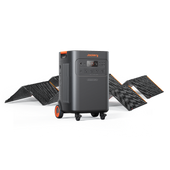












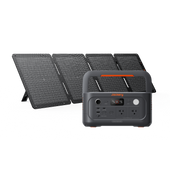



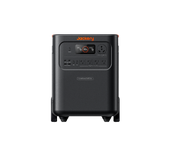
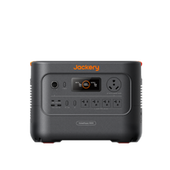






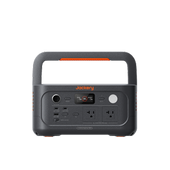





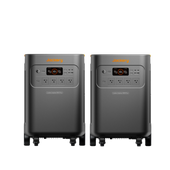
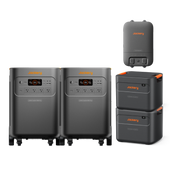





![[Add - on] Jackery Manual Transfer Switch for Explorer 5000 Plus - Jackery](http://www.jackery.com/cdn/shop/files/add-on-jackery-manual-transfer-switch-for-explorer-5000-plus-9017324.png?v=1754016782&width=170)
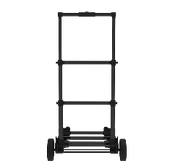
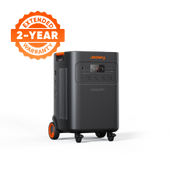
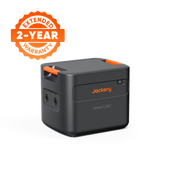
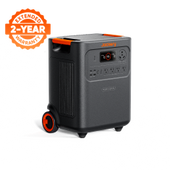
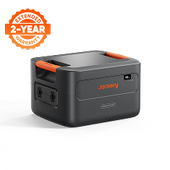
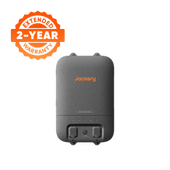



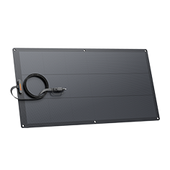
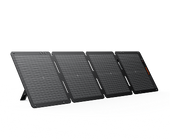





















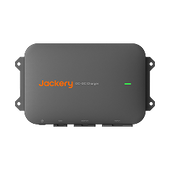




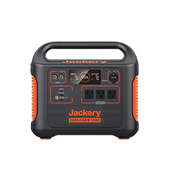






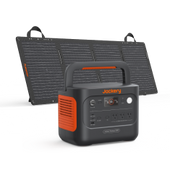
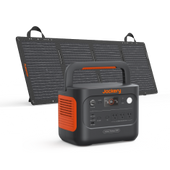






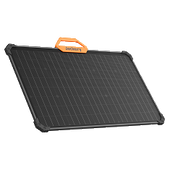
















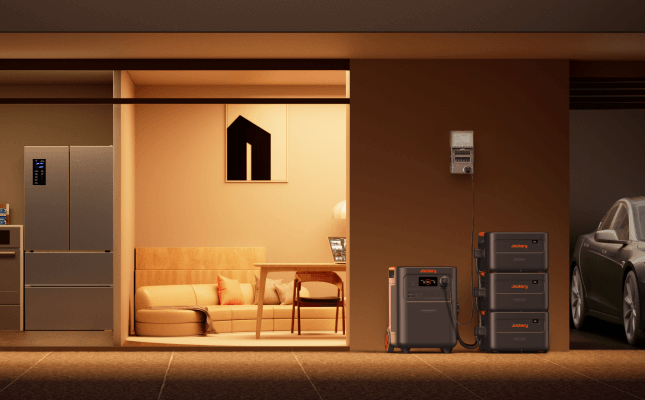




















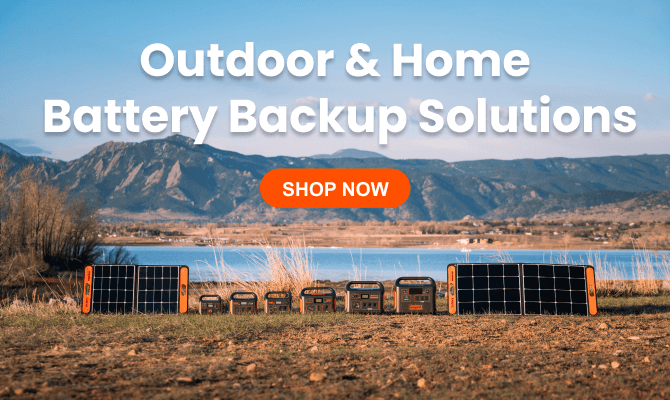
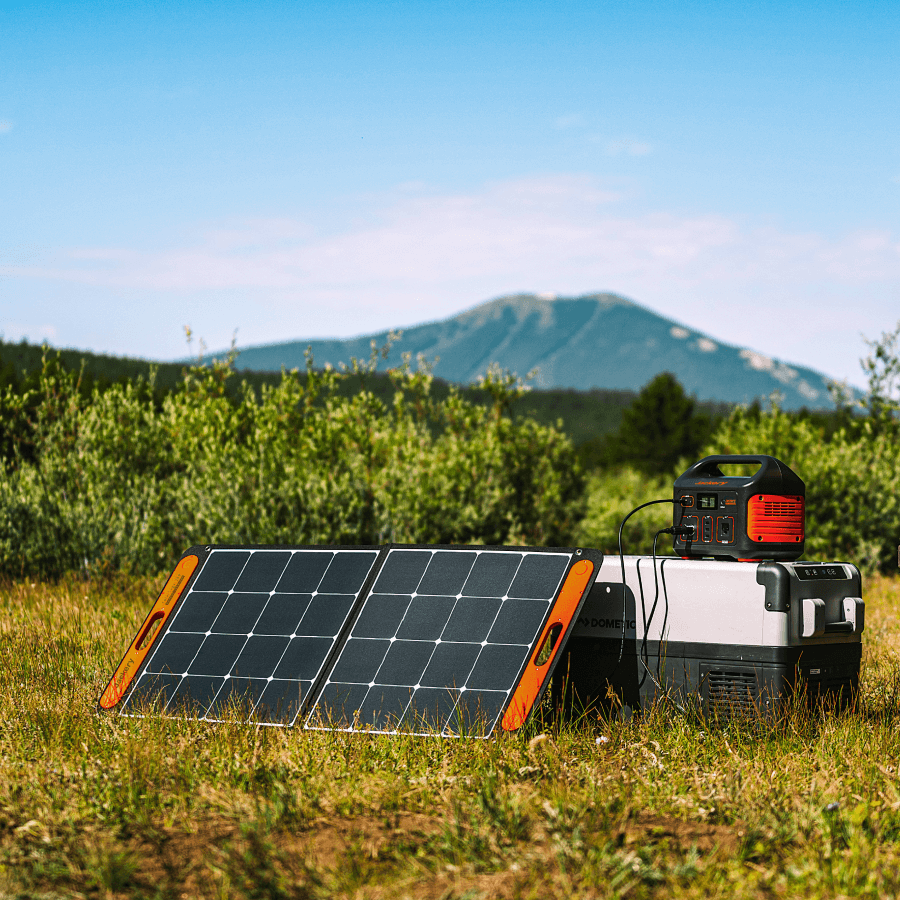


In your description you continually refer to charging appliances. What. is the difference in charging and powering AC appliances.
Leave a comment